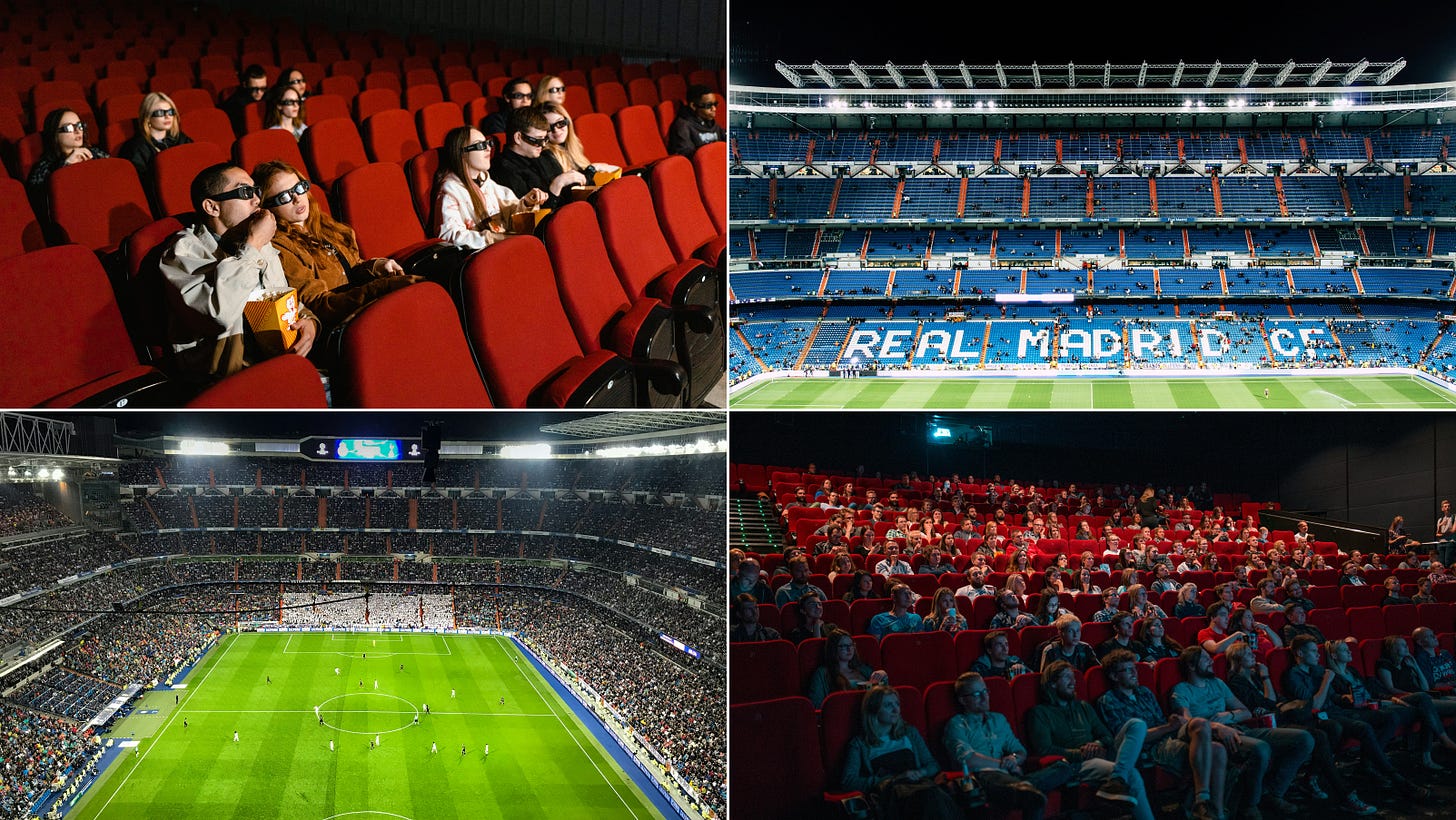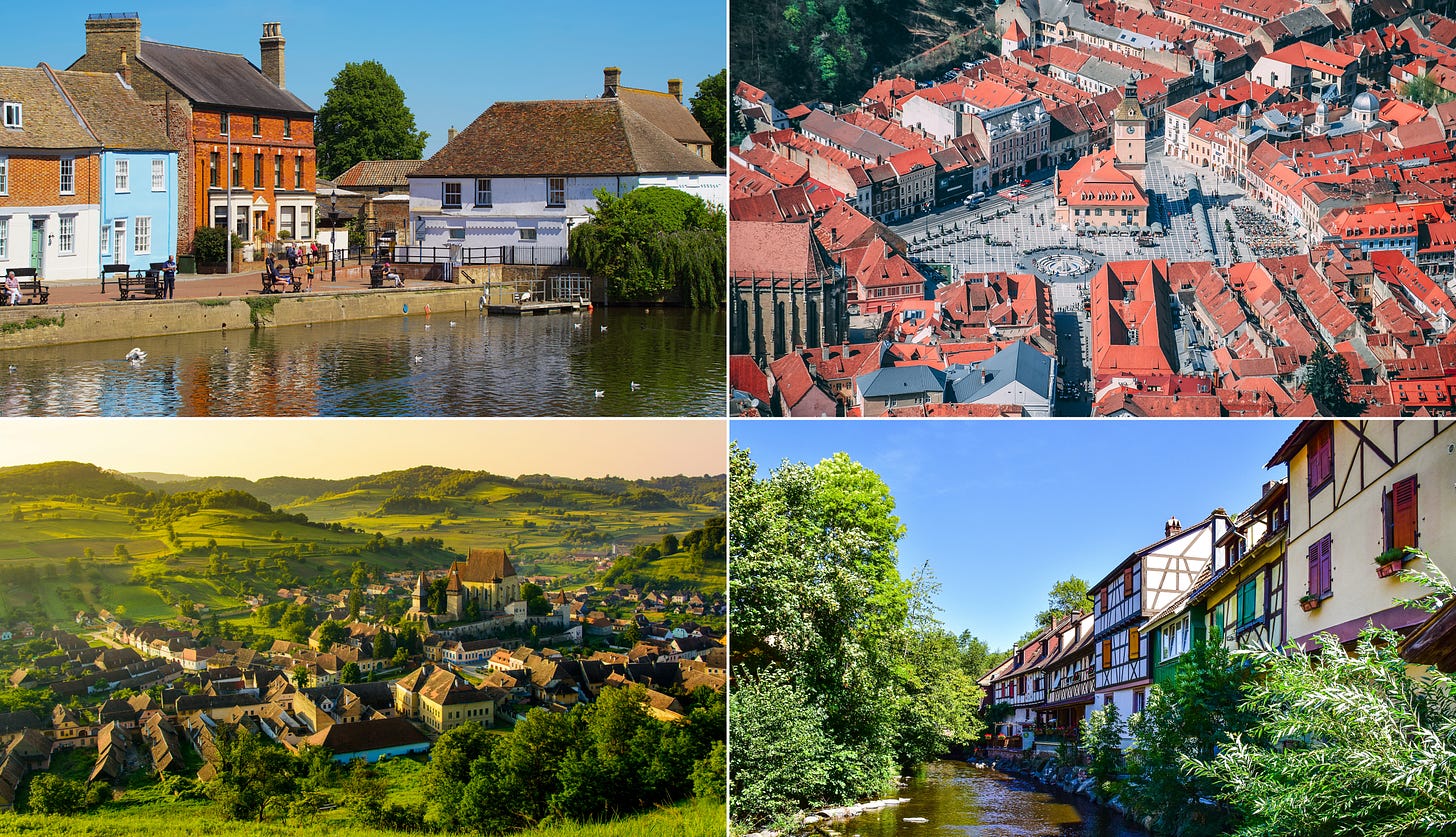The “beauty” of prioritizing leisure in your life is that you get to realize how degenerated leisure activities are today. We work so hard to the extent that, when we finally take a little break from work—we have no idea how to rest and relax.
[This is an essay from my book: The Sovereign Artist]
The Mysterious Decline of Leisure
WHENEVER WE HEAR the word “leisure”—we think of watching Netflix, scrolling TikTok, or playing video games. Yet this definition is drastically misleading. Leisure historically meant freedom for social, creative, and intellectual activities. In Greek, leisure is rendered as scholé—this means school. The Romans had a similar word for this in Latin—otium—referring to reflection, contemplation, or the pursuit of academic interests.
Jesus used to go fishing with his disciples. Seneca wrote about how Cato loved to sip wine and reflect on the meaning of life. Emil Cioran, the most famous Transylvanian philosopher who spent most of his time in Paris, liked to relax by writing joyful letters to his friends and family. John Rockefeller used to take regular breaks from his notoriously demanding schedule to mill about in his garden. Benjamin Franklin’s work sessions were broken up by periods of conversation, reading, and boredom.
Pure leisure paradoxically requires discipline, focus, and commitment, not an endless pursuit of dopamine.
Jash Dholani surprised me with a few facts:
Notice the “fort” in comfort. The Latin root of comfort means to fortify—to get stronger. The original sense of comfort was rest that gets you ready for war. Leisure must not be an escape from effort; it must be unavailable without effort. At royal weddings, theological debates were arranged as entertainment. Logicians debated God at Prince Palatine’s engagement. Aldous Huxley wrote that, in Elizabethan times, regular people “could be relied upon to break into complex musical acts” like madrigals or motets. Some people had to “exert their minds to an uncommon degree to entertain themselves.”
We’re barely able to identify any aristocracy today who prefers amusements that require some sort of social, creative, or intellectual effort, let alone regular people.
Around 1925, some people in Bucharest were allegedly complaining about how young men “comfort their mediocre souls” with the latest issues of La Nouvelle Revue Française or Insel Verlag. Such mediocrity would be a blessing today.
Not long ago, recreation was a consequence of active collaboration between family members or neighbors. The point of baking bread, my grandma used to tell me, was not to bake bread but to make friends. Italians—largely in the south—deserve their reputation: they still gather to play cards, sing, fish, or sip coffee and wine.
Pure leisure is closely related to the art of wasting your time. This is my favorite form of happiness. And also a divine search tool for wisdom. This kind of art has been long forgotten. And it’s been forgotten because we no longer know how to take control of our free time. Eliade came up with a bitter observation in 1934. At the time he wrote this, maybe he exaggerated—yet today, his words hit home with the precision of an arrow finding its mark:
Never before have there been so many commoditized entertainment products as we “enjoy” today. Most modern amusements are designed to dominate your free time and integrate it into fake leisure activities.
Consider the cinema. You get tickets to a movie and agree to have your critical behavior dominated by the subject of the show for 2h and 23 minutes. Aldous Huxley also came up with a harsh remark: “Countless audiences passively soak in the same tepid bath of nonsense. No mental effort is demanded of them.” They only need to sit down, eat popcorn, and keep their eyes open. The entire planet goes out on Saturday to watch something a bunch of fellows from Hollywood put together.
Or think of football games. As I’m writing this essay, Real Madrid is soon to play against Manchester City. I’m a big fan of Real Madrid—I thus confess that I’ve just entered a contract to have my eyes, ears, and feelings controlled for 90 minutes starting at 9 PM CET tomorrow. Tough game. Hala Madrid!
I find it funny that the interwar period is widely considered the most prosperous—especially in terms of culture—in the history of Bucharest. Yet this is what Eliade wrote at that time:
Entertainment doesn’t give you any “free time” but rather takes it away. Mass-manufactured “leisure” activities turn you into a prisoner. The modern spirit boasts an oddly painful tendency to standardize even the most spontaneous human expressions. We globally agree to have “fun” based on the same rules, rhythm, and intensity.
Technology only makes things worse. Everyone of us now keeps a tiny supercomputer in our pockets that’s ready to entertain us everywhere we go. We can have a little bit of “fun” whenever we want. Boredom is a myth; silence is a fairy tale.
These are the best possible conditions to keep artistic cultures dead. There can be no creativity without silence and boredom since the root of any creative undertaking lies in the ability to waste your time with elegance and style.
Think of all the people living in Tokyo, London, Dubai, New York, or Los Angeles. They have something “fun” to do available at all times. Are they ever able to spend time alone, in silence, meditating on random existential crises? Do they ever get bored?
Paradoxically, only those who know how to waste their time are truly busy, productive, and hard-working.
I met a young man from Croatia who’s been living in the US for the last 5 years or so; he told me he barely misses his country—he finds it boring, as there’s “nothing to do”—and claims he can’t see himself living anywhere else but in a city such as Chicago, New York, or Boston.
I can’t deny the charming vibes of a couple of big cities in this world. And I can’t deny that living in a big city does bring some benefits, especially when you’re young—since your goal is to expose yourself to as many opportunities as possible. But if you dislike quiet, human-scaled places—you’re simply disconnected from Nature or God, whatever your theology.
The quality of our leisure predicts the quality of our work.
How many of us choose to work because our ambition springs from a boundless desire to manifest ourselves spiritually? How many of us start projects, not strictly as a result of financial considerations, but because they are genuine expressions of who we want to be? Are you able to identify five true artists, scholars, or scientists among us? Can you even name one polymath that’s not dead? We work because we simply provide a service.
Just skim through Leonardo Da Vinci’s notebooks; notice in what frame of mind he was, and how foreign this is from our “artist” models. Take a look at how obsessed Dostoevsky, Nietzsche, or Kafka used to be. Do you think they had a “job” or “hobby” or rather a mission to fulfill?
Are academics today organically interested in the subjects they claim to pursue, or do they simply narcotize their minds with the same set of concepts from 9-5, Monday-Friday, to secure their employment? This is, of course, a rhetorical question.
The art of wasting your time doesn’t translate into intellectual laziness or eternal vagabonding. It’s about being open to wonder, adventure, miracle, and serendipity. It’s about being comfortable with uncertainty.
“Creativity starts with an empty calendar,” Naval Ravikant wrote, “and ends with a full one.” You seldom live more gracefully than when you waste your time.
There’s an intriguing word I came across (thanks to Evan Armstrong, lead writer at Every) called “afflatus”—it comes from Latin and means a sudden rush of inspiration, seemingly from the divine or supernatural. Few experience this; probably because it’s counter-intuitive. To get there, you don’t have to “optimize” your work but prioritize leisure. You need sacred leisure. Knowledge workers today dream of achieving dozens of tasks every week. There’s a relentless pursuit of efficiency. Predictably, they often fail and end up being dissatisfied with the quality of their systems. Evan describes why this kind of thinking didn’t serve him well:
Self-improvement is great and productivity is wonderful, but something about this vein of thought feels off. When I try to follow this advice, I may temporarily get more stuff done, but it comes at the expense of my soul. I feel like an obsessive and compulsive lumberjack, hyper-focused on marginal improvements in my sawing technique—until one day, as I finish my labors, I realize I accidentally clear-cut the forest for the trees. My success has happened because I’ve given myself space to ignore all the extra things I’m supposed to do so I can pursue afflatus. I’m not advocating for a lifestyle of ease and no work. There are always late nights and sacrifices. What I’m arguing for is the cultivation of a state of being to allow for afflatus to occur.
Final Notes: I was reluctant to publish this essay as everything you’ve (hopefully) read is based on random notes (casual scholia) I took while reading the works of Emil Cioran, Mircea Eliade, Nicolás Dávila, and Aldous Huxley; they came up with brilliant remarks about the decline of leisure, rest, and entertainment. Accusing me of plagiarism wouldn’t necessarily be a mistake. This essay is an attempt to structure all of these comments and hopefully morph them into something useful and coherent. I quote the authors when I directly stole their writing; however, when it comes to Eliade’s work, please note that I translated most of his essays in English as they’re largely available in Romanian and French. While translating his essays, I added extra context, interpretation, and clarification. The result is predictable: I ended up butchering the entire text and wrote novel thought exercises that are only mildly related to Eliade’s genius. This doesn’t mean that they’re “original” but rather that attributing them to Eliade would be disrespectful to his legacy. The same rule applies to the other writers: my annotations give birth to divagations that, at times, have almost nothing to do with the original format in terms of substance and aesthetics.








I loved this. I am going to subscribe.
There is a lovely book by the Italian Nuccio Ordine called "The Usefulness of the Useless" that you would enjoy.
The leisure activities that are filled from a self-generated interest in the world, in community, in curiosity, that is what is restorative, com-forting, that strengthen our inner sanctum, that nourish our souls. I aim to re-create the leisure reading of yesterday by carrying a book with me, ideally from the Insel Verlag of course, reading a few pages instead of pulling out my glass-case of shallow entertainment (i.e my phone)
have a great day!
This was such a nice reflection.
You're point about being disconnected with quiet places really resonated with me. I've always been a city gal, and a person of faith whilst having a strong aversion to quiet/nature-ladden places. I always felt there was a sorrowfulness/bitter-sweet vibe with nature which I would prefer to avoid.
Whilst my faith has generally supported reflection and reflection in nature, I had reduced this as an exercise of gratitude ('Look how beautiful nature is' etc.); but linking this as a direct reason for a disconnect with God, and the connection, space and imagination which comes with the quiet of the countryside/smaller places has made me reconsider how I engage with God in my day-to-day and question the sorrowfulness. I think I might try and face my aversion for the more nature-filled places soon :)